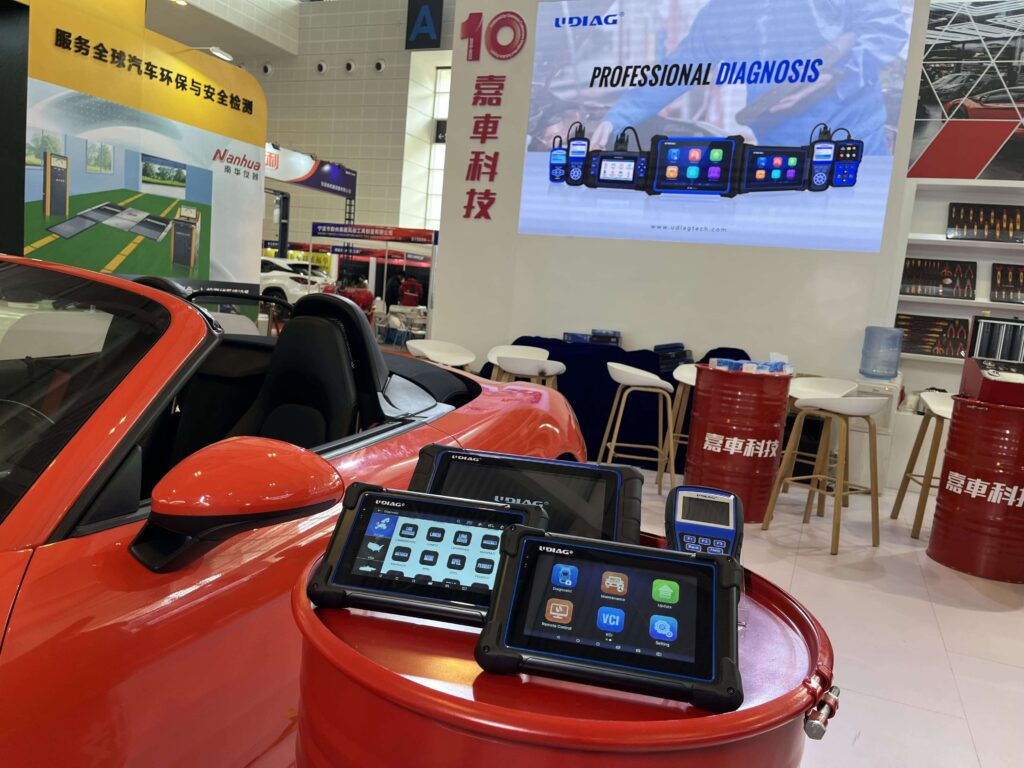Do you need an internet connection to use an obd scanner?
2023-08-17 by UDIAG

The world of automotive diagnostics has been revolutionized by the advent of On-Board Diagnostics (OBD) scanners. These devices have become indispensable tools for both professional mechanics and car enthusiasts, providing crucial insights into a vehicle’s health and performance. A pivotal question arises: do you need an internet connection to use an OBD scanner? To answer this question, we will delve into the various types of OBD scanners, their functions, and the role of internet connectivity in enhancing their capabilities.
Understanding OBD Scanners
OBD scanners are devices designed to communicate with a vehicle’s OBD system, a standardized system that monitors the performance and emissions of modern vehicles. These scanners come in different types, ranging from basic code readers to advanced diagnostic tools. Basic code readers offer the fundamental function of retrieving and clearing Diagnostic Trouble Codes (DTCs), which are indications of potential issues within the vehicle. On the other hand, advanced diagnostic scanners provide a comprehensive view of a vehicle’s internal systems, enabling real-time sensor data access, performance monitoring, and enhanced diagnostic capabilities.
Internet Connection and OBD Scanners
A fundamental distinction exists between standalone OBD scanners and those equipped with internet connectivity. Standalone scanners operate without requiring an internet connection, offering basic functionality limited to code reading and clearing. These scanners are useful for quick troubleshooting but lack the advanced features of their connected counterparts.
Internet-enabled OBD scanners, on the other hand, leverage Wi-Fi or Bluetooth connectivity to enhance their capabilities. With an internet connection, these scanners can access manufacturer-specific databases, providing detailed information about vehicle models and issues. Real-time software updates ensure that the scanner’s diagnostic capabilities remain up-to-date, reflecting the ever-evolving automotive technology landscape. Cloud-based data storage and analysis further amplify the diagnostic potential, enabling users to track vehicle history and trends over time.
Hybrid models combine both offline and online functionalities, allowing periodic updates via the internet to enrich the scanner’s diagnostic abilities. These scanners strike a balance between the immediate usability of standalone devices and the comprehensive features of internet-enabled models.
Scenarios Requiring Internet Connection
The need for an internet connection becomes evident in scenarios demanding access to updated diagnostic information. Manufacturers continuously release new codes, data, and solutions for emerging issues, making it crucial to have an internet-enabled scanner to remain current. Additionally, manufacturer-specific codes and data are often accessible only through online connectivity, enabling precise diagnosis of complex problems. Remote diagnostics and technical support benefit from internet-enabled scanners, allowing experts to assess and assist in troubleshooting from afar. Finally, third-party apps and platforms that complement OBD scanners often rely on internet connectivity to provide expanded features and services.
Scenarios Not Requiring Internet Connection
However, certain scenarios do not necessarily demand an internet connection. Basic code reading and clearing, the primary function of OBD scanners, can be achieved with standalone devices. Real-time sensor data within the scanner’s capabilities can be accessed offline, though internet connectivity might provide additional contextual information.
Considerations for Choosing an OBD Scanner
When selecting an OBD scanner, several factors come into play. The intended purpose of use, desired features, budget constraints, and available internet connectivity options all influence the decision. Users seeking quick and simple troubleshooting might opt for standalone scanners, while those desiring comprehensive diagnostic capabilities and regular updates would benefit from internet-enabled models.
Conclusion
In conclusion, the necessity of an internet connection when using an OBD scanner depends on individual requirements and preferences. Standalone scanners offer basic functionality, while internet-enabled models unlock a wealth of advanced features, real-time updates, and connectivity benefits. As technology continues to evolve, choosing the right OBD scanner involves considering the balance between immediate needs and long-term diagnostic capabilities. Whether connected or not, OBD scanners remain essential tools for maintaining and understanding modern vehicles, aiding both professionals and enthusiasts in their automotive journeys.


